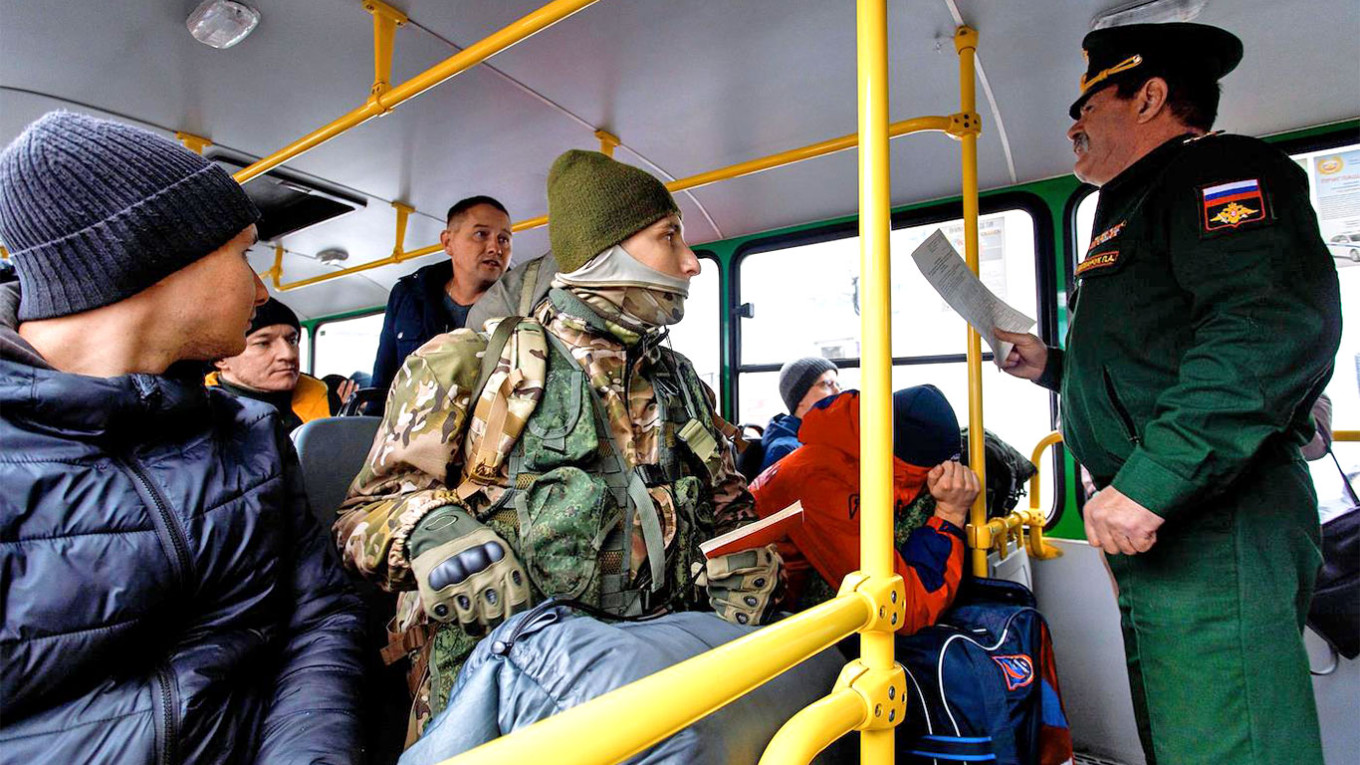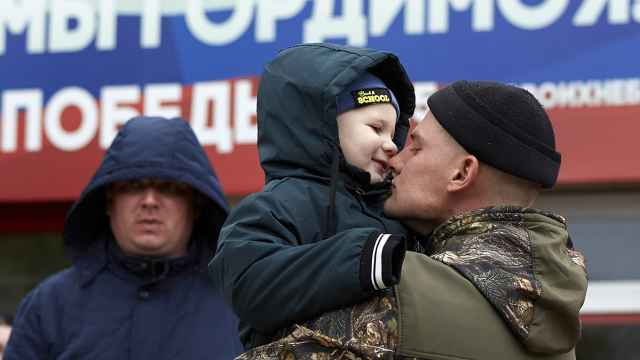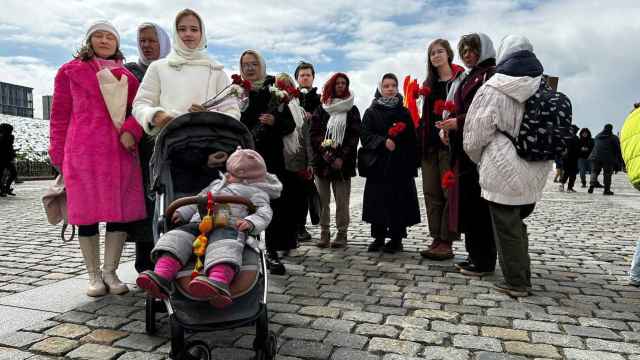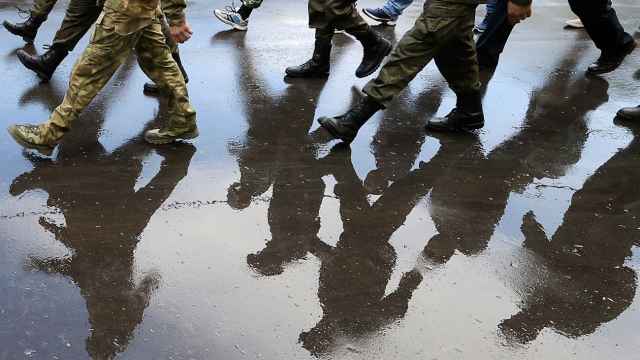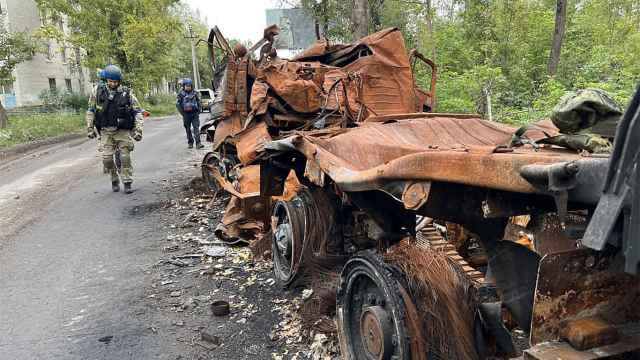Nikita moved to his family’s summer cottage outside the Russian capital to lie low after President Vladimir Putin announced a “partial” mobilization for the war in Ukraine.
Although Putin said earlier this week that mobilization was over, Nikita told The Moscow Times that he has no plans yet to return to his normal life in Moscow.
“I don’t trust what they say,” said Nikita, 27, who declined to provide his surname for fear of being identified by enlistment officers.
“The rules are simply not followed.”
Tens of thousands of Russians have sought to evade mobilization since the chaotic call-up of fighting-age men from across the country began in late September, with a mass exodus to neighboring countries dominating headlines for several weeks.
Among those unwilling or unable to flee abroad, some, like Nikita, moved to different locations in order to throw the authorities off the scent. Others regularly spent the night in different apartments, disabled their doorbells, avoided public spaces, went on extended camping trips in remote areas or even inflicted injuries on themselves.
Russian Defense Minister Sergei Shoigu said last week that the country had met the goal set by Putin of mobilizing 300,000 reservists and that no more draft notices would be sent out.
But the announcements by top officials heralding the end of conscription has been greeted with widespread skepticism, particularly as several Russian regions had previously declared an “end” to mobilization as men continued to be drafted.
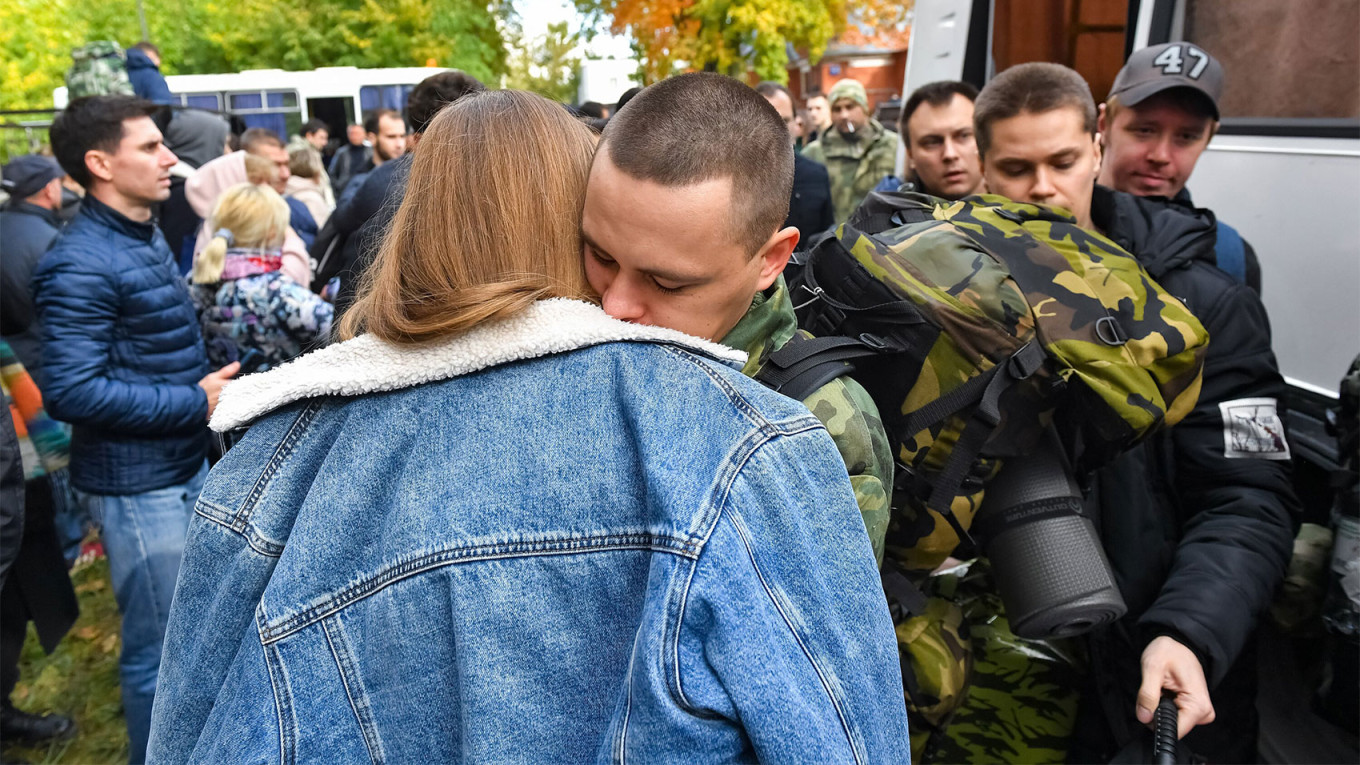
“I’m only going back home only when the call-up is really finished or when they cease all hostilities,” one IT specialist who went on an indefinite camping trip in southern Russia in late September in order to avoid being mobilized told The Moscow Times.
“I’ve seen the news of men being mobilized despite deferments or exemptions,” added the man, who requested anonymity to speak freely.
For over a month, he has been chronicling his experiences on a Telegram channel, Logical Forester, which has over 21,000 subscribers. He said his equipment in the wilderness included tents, solar panels, dried vegetables, an ax and telecommunication equipment to access the internet.
Under Russian law, men eligible for conscription must be handed a draft notice in person. Enlistment officers regularly visit workplaces or the homes where reservists are registered.
If a man is handed a draft document and signs for its receipt, but later does not appear for conscription proceedings, he is formally considered to be a draft dodger — and faces possible jail time if caught.
Failure to show up at the enlistment office after receiving one’s draft papers is punishable by a fine up to 3,000 rubles ($48). Repeated no-shows can result in a two-year prison term. Russian lawmakers announced plans Tuesday for legislation that would introduce jail terms up to five years for draft dodgers — although the proposal was withdrawn the same day.

While there are no exact figures of how many draft-age men have fled the country since the launch of mobilization, Forbes Russia reported last month, citing Kremlin officials, that the total could be as high as 700,000.
Popular destinations have included the post-Soviet states of Georgia, Armenia, Kyrgyzstan and Kazakhstan.
However, many Russians were unable to flee — lacking the money for expensive plane tickets — or limited by elderly parents, mortgages and other commitments.
Some who stayed behind started working remotely to avoid being handed draft papers at their offices, while others avoided public transport or crowded streets where they feared police checks. Other reports documented people disabling doorbells so they wouldn’t hear enlistment officers, while videos circulated online of men deliberately inflicting injuries on themselves as a way to gain a medical exemption.
“I'm ready to break a leg or an arm,” said a resident of the western exclave of Kaliningrad in a September report by the BBC Russian Service.
Vladimir, 26, told The Moscow Times that he packed up his belongings and moved 200 kilometers from his home in the Siberian city of Ulan-Ude to a house deep in the forest the day after mobilization was announced.
“When it turned out that I fit the vague criteria [for mobilization], my calm evaporated,” said Vladimir, who requested anonymity to speak freely.
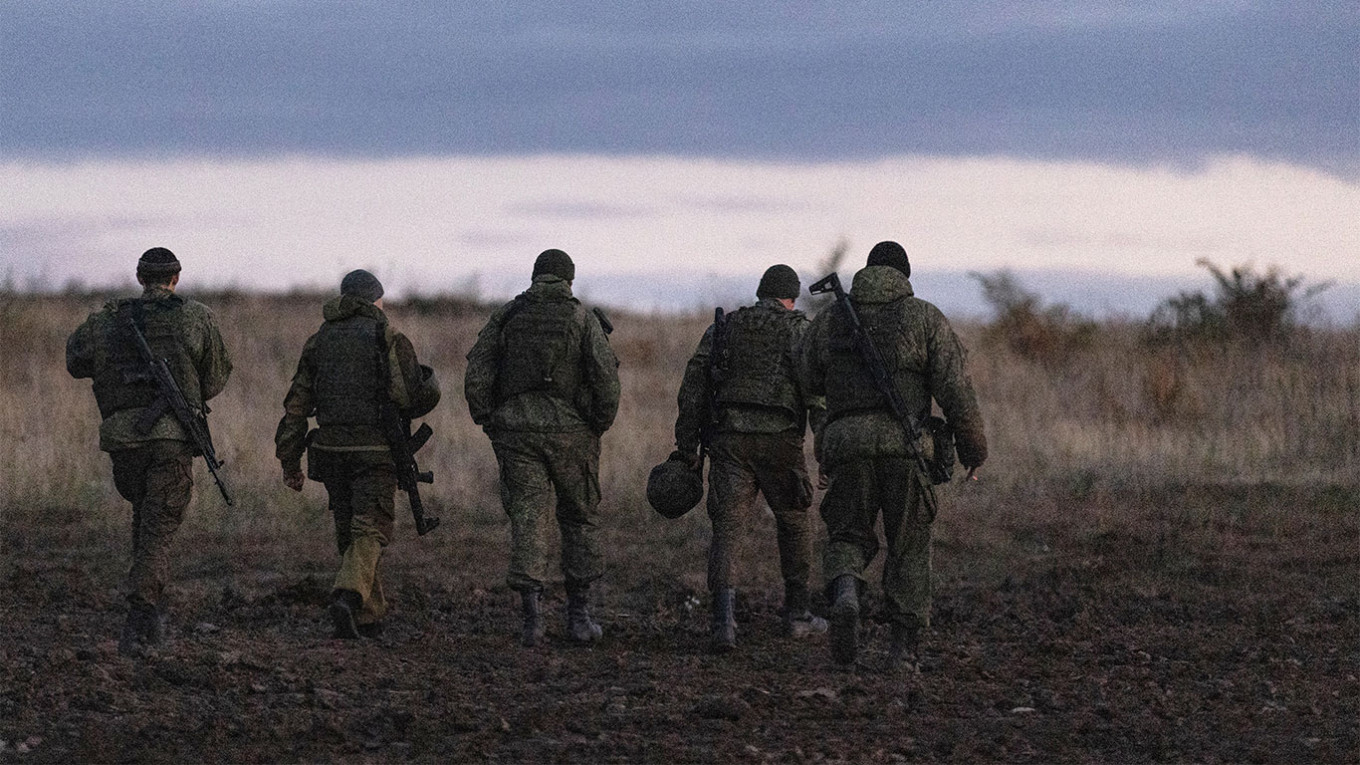
Putin said at a press conference Monday that the call-up, which was necessary to provide manpower for Russia’s struggling Armed Forces in Ukraine, had come to an end.
However, experts have repeatedly warned that verbal assurances from Russian officials without a presidential decree are non-binding.
When asked by reporters about whether a presidential decree was required to end mobilization, Putin said he would “talk to lawyers.” The following day, Putin’s spokesperson, Dmitry Peskov, said that the president had, indeed, consulted with legal experts who assured him that a new decree was not necessary.
Even if Putin were to change his mind and sign a decree ending mobilization, some Russians would still be unable to relax and return to life as normal.
The IT professional camping in southern Russia said he plans to build a small house in the forest in order to survive the upcoming winter.
“My future plans are uncertain at the moment,” he said.
And Muscovite Nikita said he will continue living in his family’s cottage outside Moscow. “Even if a decree was signed, it would not change my decision,” he said.
A Message from The Moscow Times:
Dear readers,
We are facing unprecedented challenges. Russia's Prosecutor General's Office has designated The Moscow Times as an "undesirable" organization, criminalizing our work and putting our staff at risk of prosecution. This follows our earlier unjust labeling as a "foreign agent."
These actions are direct attempts to silence independent journalism in Russia. The authorities claim our work "discredits the decisions of the Russian leadership." We see things differently: we strive to provide accurate, unbiased reporting on Russia.
We, the journalists of The Moscow Times, refuse to be silenced. But to continue our work, we need your help.
Your support, no matter how small, makes a world of difference. If you can, please support us monthly starting from just $2. It's quick to set up, and every contribution makes a significant impact.
By supporting The Moscow Times, you're defending open, independent journalism in the face of repression. Thank you for standing with us.
Remind me later.



